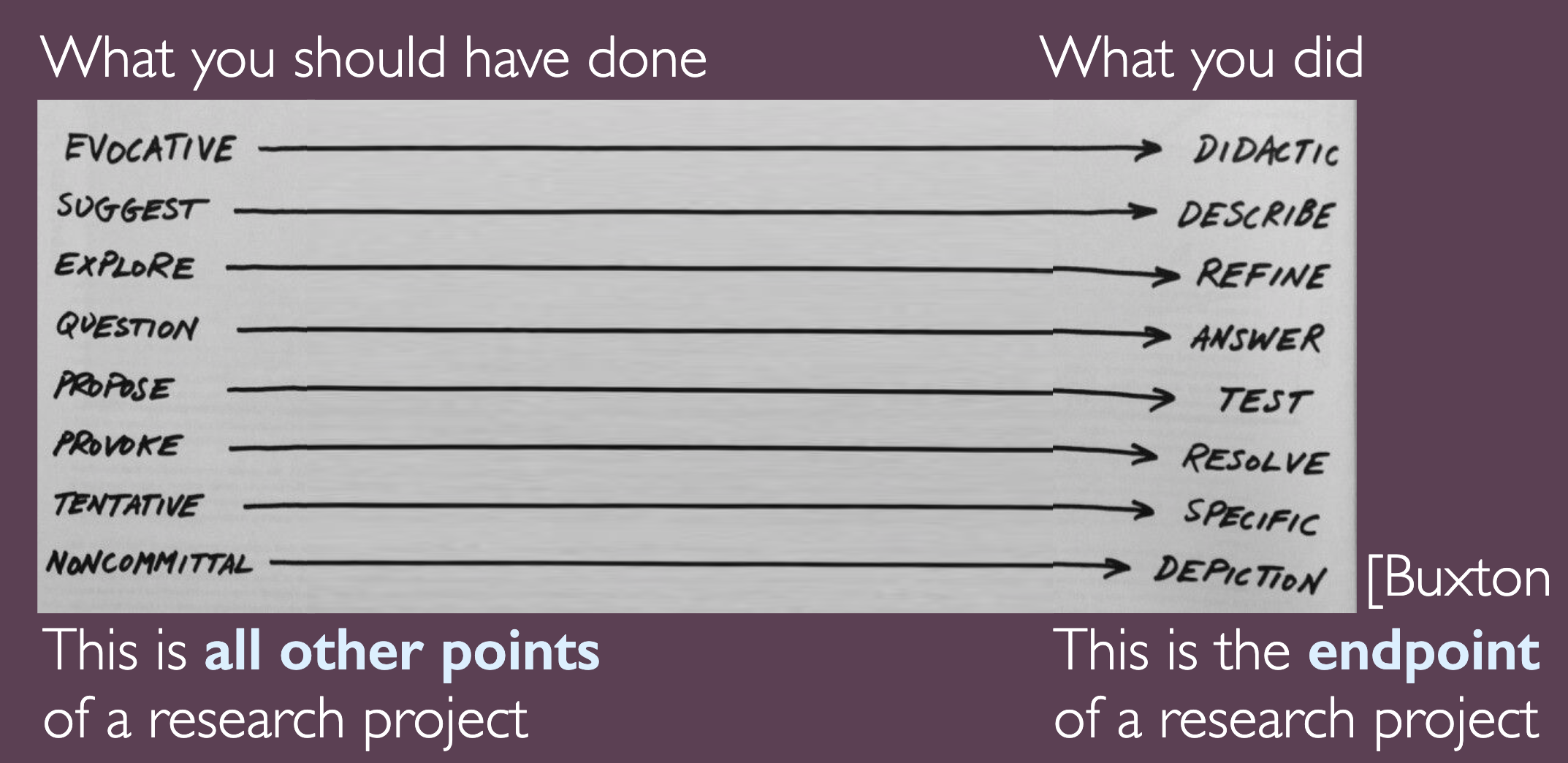Andyʼs working notes
About these notesMichael Bernstein - CS 197 - Vectoring
Quite a bracing talk. Michael Bernstein suggests that a common problem for junior researchers is that they try to solve the whole problem they’re thinking about, or act on the idea they have, as if it’s a project spec—something to be implemented—rather than an undefined space to explore. This causes two problems: first, that you end up doing the wrong thing, because you go specific and answer-oriented before you really understand the idea; second, that you get stuck, because you’re trying to do too many things at once.
Instead, he suggests, you should engage in an iterative cycle of “vectoring” and “velocity”: identifying the biggest dimension of risk in your project, then taking action to rapidly reduce it—in the span of a week or two! That’s quite a tight timeframe; I’ve rarely iterated that rapidly. But I’d like to give it a try.
This is quite a figure:
The only hesitation I have is that I’m skeptical that you really can “identify the dimension of highest impact+uncertainty, and prioritize that dimension”. My experience has been that much of the time, I really don’t—can’t—know, and I’m fooling myself when I try to chart things out with any degree of certainty. Why Greatness Cannot Be Planned - Stanley and Lehman etc. This doesn’t change the conclusion, though, that you really want iterative cycles of question-generation and question-answering.
Continues with Michael Bernstein - CS 197 - Velocity.